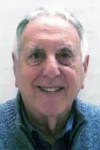By Donald H. Harrison



SAN DIEGO – City Attorney Mara W. Elliott’s office has announced that “we do not intend to file criminal charges against the 64 people arrested” at the anti-Israel encampment on the UC San Diego campus last May. According to a statement, the decision was made “after a months-long review” of “substantial body-worn camera footage and all other available evidence.”
The statement went on to say, “As with any other case, the decision not to file charges can be reconsidered within the statute of limitations. If arrestees engage in unlawful activity in the future, we will consider that conduct along with their involvement.”
In response, former Congresswoman Lynn Schenk (D-San Diego) protested on Thursday, Oct. 31, that “in my view, if it had been demonstrations against African Americans or Latinos or LGBTQ or whatever, charges would have been filed. I just feel that way very strongly but because these were pro-Hamas demonstrations against Jews and against Israel, it is in a different category.”
Schenk said that she and fellow lawyers Fred Schenk (her brother) and Robert Lapidus, as well as other persons active in the Jewish community, have sent their written protests to Elliott’s office.
In response, Elliott sent a letter back to Schenk, which stated:
“This office has proudly fought to protect our community and to keep it safe. We worked with Assemblyman Chris Ward to draft legislation that bans the distribution of hate flyers intended to terrorize our neighborhoods and our response to hate crimes is robust. We take our responsibilities very seriously.” (The Stop Hate Littering Act recently was signed into law by California Gov. Gavin Newsom.)
Elliott’s letter continued: “As prosecutors, we must conclude that we can prove our case beyond a reasonable doubt before we file charges. This is an ethical mandate. When we receive a case from law enforcement, we review the strength of the evidence, the harm caused by the offense, and the totality of the circumstances. We’re concerned that the community has not received accurate information about this Office’s review of the UCSD cases. Here, no one was arrested for violence or possession of any illegal substances or weapons, nor were those arrested identified as having harassed or threatened anyone. Defense counsel has also publicly identified possible evidentiary challenges that they have used to their clients’ advantage in UCSD disciplinary proceedings and would likely raise in criminal proceedings.”
The letter from the city attorney cited an article that appeared on the website of KPBS, linked here.
The city attorney’s letter concluded by saying, “The statute of limitations remains open, and we have informed defense counsel that we expect their clients to abide by the law. We also informed defense counsel that we may reopen these cases before the one-year statute of limitations runs if criminal activity occurs. We also consider that the university is able to, and has, taken disciplinary action, so the conduct is not going unaddressed.”
UC San Diego spokesperson Matt Nagel told San Diego Jewish World, “Because of student privacy laws, the university cannot comment on disciplinary cases.”
Former Congresswoman Schenk challenged the City Attorney’s reasoning for not pursuing charges against those arrested at the illegal encampment: “Lots of cases have weak evidence. That doesn’t mean that you don’t bring a case, file charges, and maybe do a plea bargain. But this way, and again in my opinion and that of the people I have been talking to, this emboldens people to do it again. On top of it, people who may have been on the fence about participating because they didn’t want to get in legal trouble will say, “Wow! Not even a slap on the hand, nothing! Of course, we can participate. No one is going to punish us!’”
She added that “if there wasn’t specific evidence, have the investigators from the city attorney go and talk to law enforcement.” She said the investigators should ask the law enforcement officers, “What did you see? Who did you see?”
“Whatever evidence was provided by law enforcement to date may have been weak but they can strengthen it by asking questions and investigating by doing the kinds of things that were done with the January 6th (2021 invasion of the U.S. Capitol),” Schenk commented. “At that time there were no specific individuals, but they looked at the tape, they got the faces, and they were able to identify individuals.”
The city attorney’s office responded to Schenk’s comments: “As prosecutors, we must conclude that we can prove our case beyond a reasonable doubt … Prosecutors cannot bring charges if they do not believe a court will convict the defendant any more than a police officer can arrest someone without probable cause.”
A spokesperson in the city attorney’s office also provided information about two anti-Israel cases prosecuted by the city attorney that preceded last May’s encampment.
In December 2023, the House of Israel in Balboa Park was vandalized. Defendant Parnia Vafael pleaded guilty and “was granted pre-trial diversion by the court and ordered to remain law abiding, pay restitution, perform community service, have no contact with any representative of the House of Israel, and stay 300 yards away from all of the International Houses in Balboa Park. A restitution evidentiary hearing is scheduled for Nov. 18.”
In March, during an anti-Israel rally on the UC San Diego campus, counter-protester Kerry Schlossberg had the contents of a water bottle poured on her head by a demonstrator who dashed away. Defendant Ansel Tlaloc Espinosa De Los Monteros “was charged with simple battery” (and) “was arraigned and pleaded not guilty” on Sept. 12. On Monday, October 28, “the court granted the defense 1001.95 misdemeanor diversion motion for a diversion term of one year. During that term, the defendant is ordered to have no contact with the victim, violate no laws, complete 24 hours of volunteer work service, complete an anger management class and write an apology letter to the victim. If all terms are completed the case will be dismissed by the court at the one-year review.”
*
Donald H. Harrison is publisher and editor of San Diego Jewish World.
Fabienne Perlov, San Diego regional director of the Anti-Defamation League, issued the following comment: “We are disappointed with the San Diego City Attorney’s decision to drop charge against the students arrested at the UCSD encampment in May. WE believe that accountability is essential to protecting the rights of everyone on campus. We trust that the City Attorney will follow through on the promise to reinstate charges if any of the students re0offend. We call on UCSD to enforce their policies and hold students who have violated the code of conduct accountable.”